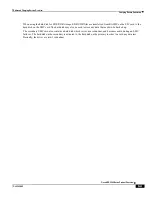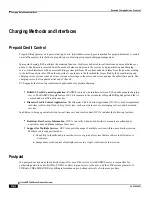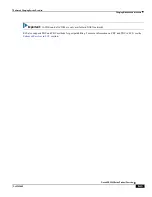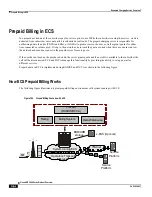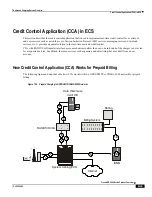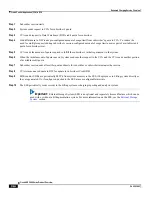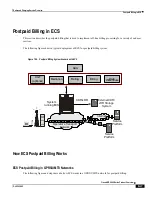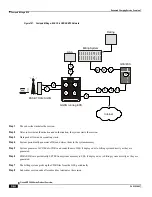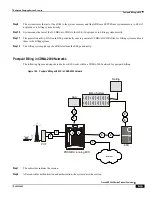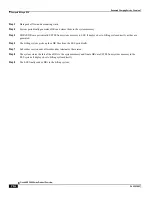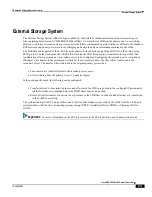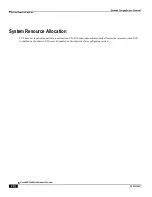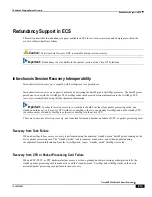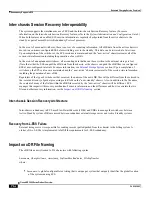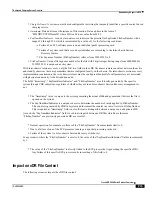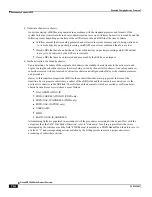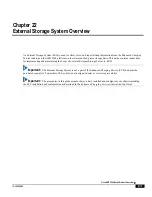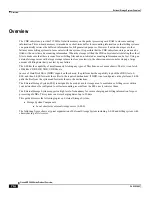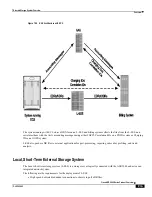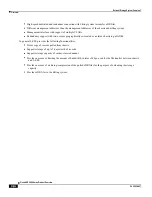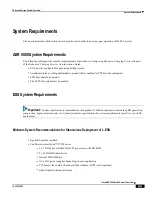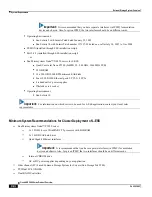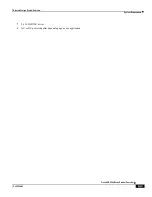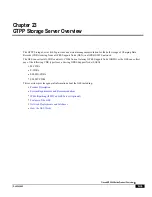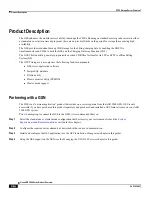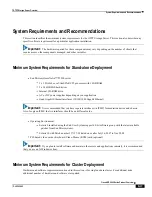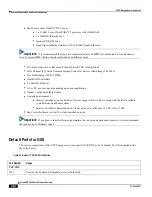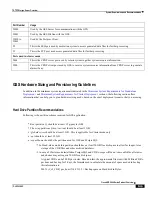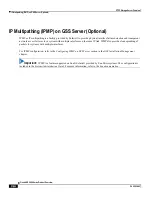
Enhanced Charging Service Overview
Redundancy Support in ECS ▀
Cisco ASR 5000 Series Product Overview ▄
OL-22938-02
ChargSvcName
: A system context-based configurable text string that uniquely identifies a specific context-based
charging service.
timestamp
: Date and time at the instance of file creation. Date and time in the form of
―MMDDYYYYHHmmSS‖ where HH is a 24-hour value from 00-23.
SeqNumResetIndicator
: A one-byte counter used to discern the potential for duplicated FileSeqNumber with a
range of 0 through 255, which is incremented by a value of 1 for the following conditions:
Failure of an ECS software process on an individual packet processing card
Failure of a system such that a second system takes over according to the Inter-chassis Session
Recovery feature
File Sequence Number (FileSeqNumber) rollover from 999999999 to 0
FileSeqNumber
: Unique file sequence number for the file with 9 digit integer having range from 000000000 to
999999999. It is unique on each system.
With inter-chassis session recovery, only the first two fields in the xDR file names remain consistent between the active
and standby chassis as these are parameters that are configured locally on the chassis. Per inter-chassis session recovery
implementation requirements, the two chassis systems must be configured identically for all parameters not associated
with physical connectivity to the distribution node.
The fields ―timestamp‖, ―SeqNumResetIndicator‖, and ―FileSeqNumber‖ are all locally generated by the specific
system through CDR subsystem, regardless of whether they are in an Inter-chassis Session Recovery arrangement or
not.
The ―timestamp‖ value is unique to the system generating the actual xDRs and generated at the time the file is
opened on the system.
The SeqNumResetIndicator is a unique counter to determine the number of resets applied to FileSeqNumber.
This counter is generated by CDR subsystem and increment the counter in event of resets in FileSeqNumber.
This is required as ―timestamp‖ field is not sufficient to distinguish between a unique and a duplicate xDR.
As such, the ―SeqNumResetIndicator‖ field is used to distinguish between xDR files which have the same
―FileSeqNumber‖ as a previously generated xDR as a result of:
Normal operation, for example a rollover of the ―FileSeqNumber‖ from maximum limit to 0.
Due to a failure of one of the ECS processes running on a packet processing card card.
Failure of the system (i.e. Inter-chassis Session Recovery switchover).
In any scenario where the ―FileSeqNumber‖ is reset to 0, the value of the ―SeqNumResetIndicator‖ field is incremented
by 1.
The value of the ―FileSeqNumber‖ is directly linked to the ECS process that is generating the specific xDRs.
Any failure of this specific ECS process results in resetting of this field to 0.
Impact on xDR File Content
The following scenarios impact the xDR file content:
Summary of Contents for ASR 5000 Series
Page 1: ......
Page 26: ......
Page 48: ...New In Release 10 0 SCM Features Cisco ASR 5000 Series Product Overview OL 22938 02 ...
Page 50: ......
Page 58: ......
Page 68: ......
Page 126: ......
Page 138: ......
Page 146: ......
Page 218: ......
Page 236: ......
Page 356: ......
Page 374: ......
Page 422: ......
Page 496: ......
Page 572: ......
Page 654: ......
Page 700: ......
Page 726: ......
Page 784: ......
Page 816: ......
Page 844: ......
Page 906: ......
Page 926: ......
Page 942: ......
Page 943: ...Cisco ASR 5000 Series Product Overview OL 22938 02 Chapter 30 Technical Specifications ...
Page 966: ......
Page 972: ......

